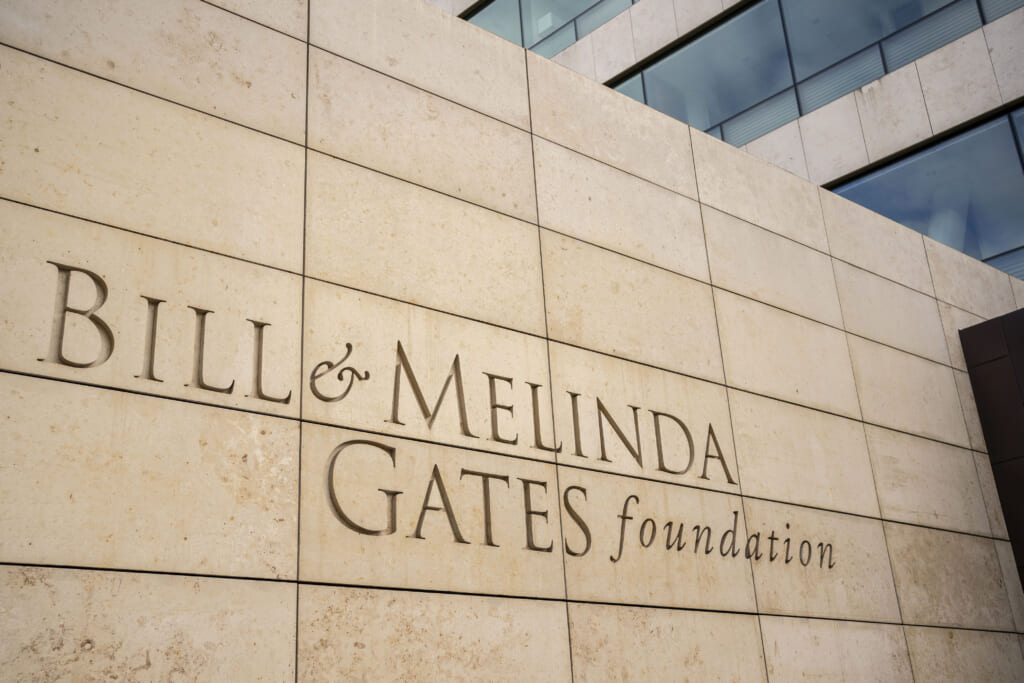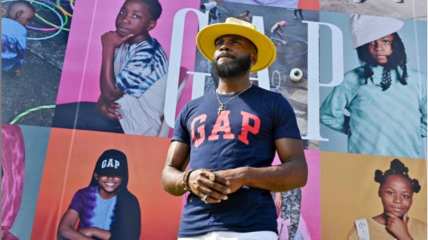Gates Foundation awards $1 million grants to improve math education for Black K-12 students
Gates Foundation director Bob Hughes tells theGrio it noticed “learning loss in math is even greater than learning loss of literacy” -- the pandemic only widened the gap.
Grants from the Bill & Melinda Gates Foundation’s Balance the Equation – A Grand Challenge for Algebra I will award upwards of $1 million to various educational programs focused on Black students.
Bob Hughes, director of K-12 Education at the Gates Foundation told theGrio, the organization decided to focus on math because it noticed that “learning loss in math is even greater than learning loss of literacy” and the pandemic only widened the gap.

The philanthropy consortium announced on Wednesday that grantees representing a diverse and impressive cohort of organizations will receive funding to make Algebra 1 more accessible, relevant, and collaborative for students who are Black, Latinx, English Learners, and/or experiencing poverty.
The Balance the Equation program granted money in two phases. In early 2021, the Gates Foundation announced an initial group of 15 grantees would receive $100,000 to develop, test, and refine programs, and now 11 grantees will get additional funding to put their ideas into action including: BetterLesson Inc, The Black Teacher Collaborative (BTC), ConnectED: The National Center for College and Career, Howard University Middle School of Mathematics and Science, in partnership with Howard University, Mastory, The Rhode Island Department of Education, The University of California at Los Angeles (UCLA) Curtis Center for Mathematics and Teaching, The University of Florida, Village Education Tutors Foundation, The Young People’s Project and Zearn.
Several educators receiving the grants aim to tackle the root causes of challenges Black scholars experience as they engage with the foundational math curriculum. In particular, the Black Teacher Collaborative (BTC) aims to end harmful narratives that suggest Black students are not natural math learners.
“We know that schooling and society tells Black students that they can’t do math,” said Wallace Grace, director of innovation at the Black Teacher Collaborative.
Wallace told theGrio the teachers trained by BTC “reinforc[ing] the Black students that Black people throughout the diaspora have always been mathematical, that Black people doing math is as old as time” as a solution to this misconception.

The Black Teacher Collaborative also places an emphasis on addressing students who have been promoted to Algebra I despite lacking full mastery of the prerequisite courses. Representatives of the organization acknowledged the learning curve could be considered a “perfect storm” for Black students as they take on an essential math class that requires addition, subtraction, multiplication and division for most problems.
“These aren’t new challenges,” said Hiewet Senghor, founder and CEO of the Black Teacher Collaborative. “The perfect storm is being a Black child in a public school system or in an educational system that was never designed for you to achieve or succeed. And so, Black teachers have always recognized that and as a function of that, have always created solutions.”
Another hurdle Black students face as they navigate Algebra I can be found in their home environments. The Village Education Tutors Foundation developed a grant proposal to address the challenges of household noise, on-camera engagement and overall anxiety students confront as they embrace digital learning.
“We need to get headphones for students — noise-canceling headphones, virtual background, like the actual green screens,” Kayla Scott, an intern at the Village Education Tutors Foundation and student at Howard University recommended.
“Certain things would just become easier for them to make them comfortable in the virtual space. And it’s just a blessing that we’re able to provide those services to students.”
Like the Black Teacher Collaborative, the Village Education Tutors Foundation has zeroed in on the impact of self-esteem on student performance and success. The tutoring service takes the approach of tackling imposter syndrome.

“We’re concerned about making sure that that child feels whole, that child feels seen, that child knows that they’re enough,” said Shawnickque Kent, founder of the Village Education Tutors Foundation. “We’re trying to help them to realize their greatness. And so that’s equity-based programming in a nutshell and the secret sauce.”
Nearly 82% of the grantees are minority-led organizations and 45% are new to the Gates Foundation. Among the 11 grantees, one state’s school system, the Rhode Island Department of Education, will pilot a program with support for multilingual learners.
“Unprecedented times mean we have an opportunity to innovate and reimagine public education like never before. We are incredibly honored to have been the only state agency selected a winner of the Bill & Melinda Gates Foundation’s Grand Challenge for Algebra 1,” said Rhode Island Education Commissioner Angélica Infante-Green.
Have you subscribed to theGrio’s “Dear Culture” podcast? Download our newest episodes now!
TheGrio is now on Apple TV, Amazon Fire and Roku. Download theGrio.com today!


